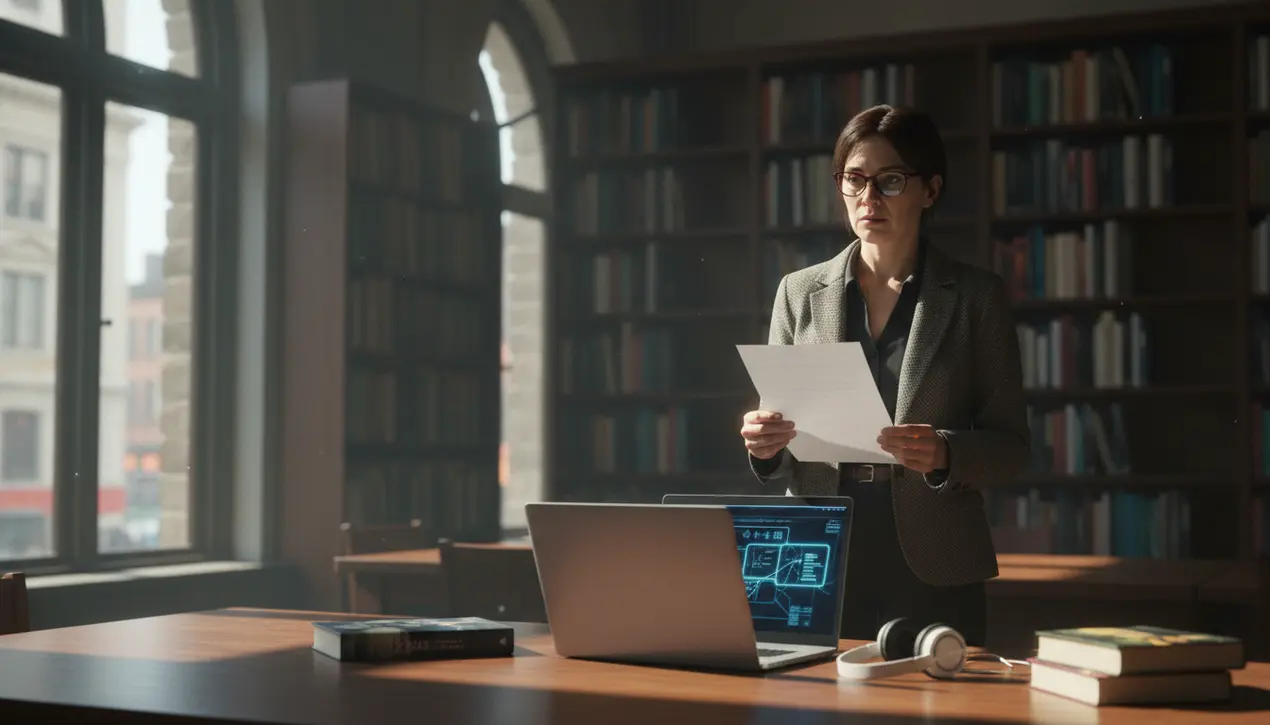
OthereducationEdTech Innovations
Librarian settles lawsuit with Proctorio over sharing public videos.
MI
Michael Ross
2 hours ago7 min read3 comments
In a settlement that reads like a chapter from an Asimov novel, a librarian has successfully concluded a legal battle with the remote proctoring firm Proctorio, a case that strikes at the very heart of the ethical quandaries posed by our increasingly automated world. The dispute, which has been quietly simmering, centered on the librarian's act of sharing publicly available demonstration videos that laid bare the inner workings of Proctorio's invasive surveillance software—technology that has become a ubiquitous, and often resented, feature of remote education.This isn't merely a story about a legal skirmish; it's a pivotal moment in the ongoing debate between technological convenience and fundamental privacy rights, a classic risk-versus-opportunity scenario that I, as a follower of AI policy, find deeply compelling. The librarian’s vow to continue opposing what they term 'invasive ed tech' echoes the precautionary principle often championed in ethical tech circles, a modern interpretation of Asimov's own First Law: a robot may not harm humanity, or, through inaction, allow humanity to come to harm.The software in question, used by countless educational institutions to monitor students during exams, operates by gaining deep access to a user's computer, tracking eye movements, keyboard activity, and ambient noise, creating a digital panopticon that many argue fosters an environment of distrust and anxiety. The act of making these demonstration videos more accessible was, in essence, a form of algorithmic transparency, a crucial demand in an era where 'black box' AI systems make consequential decisions about people's lives.This case forces us to ask: at what point does necessary oversight morph into unacceptable intrusion? The settlement, while its specific terms remain confidential, represents a significant, if symbolic, victory for digital rights advocates and sets a fascinating precedent. It signals that pushing back against the unexamined adoption of surveillance technologies is not a futile endeavor.The consequences ripple outward, potentially empowering other students, educators, and institutions to scrutinize the tools they are mandated to use and to demand greater accountability from the ed-tech industry. This is not an argument against innovation, but a plea for considered integration, for building systems that empower rather than police, that support learning rather than stifle it with a blanket of suspicion. The librarian’s stand is a testament to the enduring role of public-minded citizens in holding powerful technologies to account, ensuring that the future of education is shaped not just by what is technically possible, but by what is ethically defensible.
#Proctorio
#lawsuit
#settlement
#ed tech
#privacy
#academic freedom
#featured
Stay Informed. Act Smarter.
Get weekly highlights, major headlines, and expert insights — then put your knowledge to work in our live prediction markets.
Related News
Comments
Loading comments...
© 2025 Outpoll Service LTD. All rights reserved.